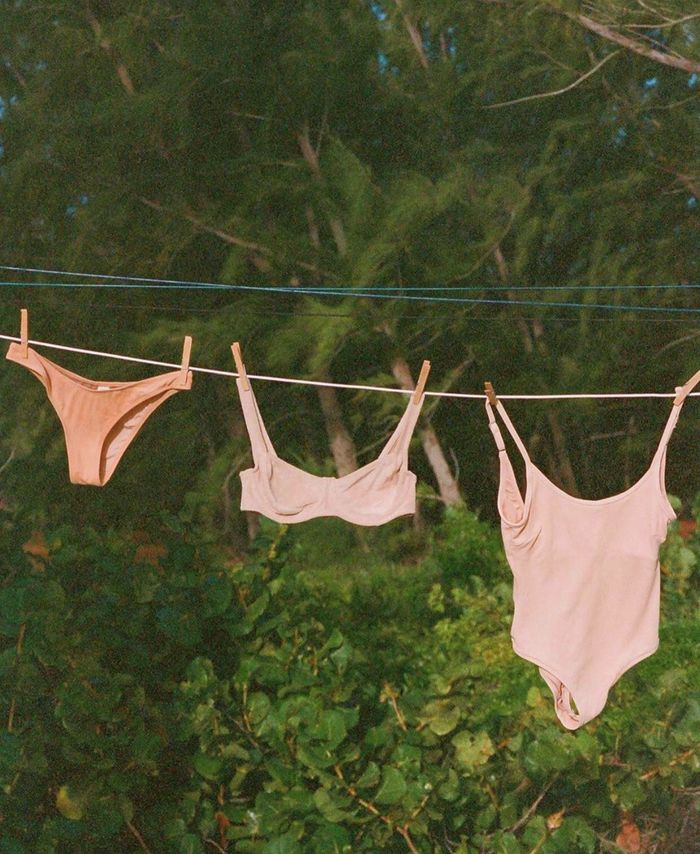Buying moods, not clothes: why do we shop?
Feeling uninspired in her lockdown hunt for the ideal post-lockdown summer dress, Angharad Williams looks at why we shop – are we driven by materials, moods, or prospects of the future?
Ever since lockdown began, I have been searching for the perfect summer dress. By now, I must now have looked at hundreds of options online and yet I have been unable to find a single one I like enough to buy. This is not because I am searching for a specific style or an exact shade of colour - instead it seems that the uncertainty lockdown is accompanied with has left feeling like no option is quite right. Why, I wonder? Being taken by this surprise, I question why we shop for clothes at all, and what it truly is that we look for.
My own experience has shown me how we could argue that shopping is an inherently emotional activity, tied to the way we feel about ourselves and our lives at any given moment. But this has not always been the case. Shopping used to be a simple question of buying what was needed, with a focus on utility that reduced the number of choices to be made. As Émile Zola’s The Ladies Paradise documents, the emergence of department stores in the nineteenth century changed this completely by offering customers a wide range of goods. These stores tapped in to a growing focus on leisure activities, and transformed the purchasing of clothes into a question of individual taste. Although stores are closed at the moment, even in online adverts it is apparent that the buying and selling of clothing continues to be driven by emotional appeal.
Naturally, some emotions drive us to shop more than others. Purchasing clothes is naturally followed by the wearing of them, so often a sense of exhilaration and excitement in the anticipation thereof drives us when we shop. When we buy clothing we do so with specific ideas about when to wear them in mind. We select items not in isolation but by imagining them as part of a particular outfit, from party trousers to an everyday t-shirt. Man Repeller recently featured a in debate on whether there is any point in paying attention to clothes in lockdown then, as there is nowhere wear them. Writers Leandra Cohen and Harling Ross note that the concept of style is dependent on being seen, however they deviate as to whether this includes self-recognition of a given look. What they highlight clearly though is that we shop by creating specific images of ourselves, regardless of whether these are for ourselves or for others.
Style is contingent upon other people seeing it because style as a concept implies that there’s a transaction taking place - Harling Ross
Diane Von Furstenberg brilliantly articulated the connection between what we wear and who we are. Asked by the Design Museum about her sense of style the designer explained “I dress to reflect my mood, my state of mind, the woman I am”. From her perspective the desire for a given item of clothing is not for the material object, but the implications and connotations that come with it. Thus, perhaps Von Furstenberg’s signature wrap dress did not only sell because women yearned for a new style, but equally because it developed to be a symbol of modern femininity. This gets to the crux of why choosing clothes may seem more difficult with the uncertainty of lockdown. Shopping is reliant on being able to imagine the future, and how we want to look in it.
It is not just our personal future that shopping helps to shape, but the future of the fashion industry. Coronavirus has halted the cycle of buying and the value of it returning to its previous state is now being questioned. The pandemic has drawn our attention once more to the devastating impacts of human activity on the environment. Celine Semaan, founder of Slow Factory, hopes therefore that the crisis will be the push businesses need to recognise the importance of sustainable models. In fact, we as consumers are the ones to lead the way. We shop as a way of representing ourselves, and our values. The lockdown period is a key juncture as it has drawn attention to the value of a more limited lifestyle, leading people to evaluate what is truly important to them - the future of a post-lockdown party dress, or a newfound future of deliberate consumption?
 News / SU reluctantly registers controversial women’s soc18 December 2025
News / SU reluctantly registers controversial women’s soc18 December 2025 Features / Should I stay or should I go? Cambridge students and alumni reflect on how their memories stay with them15 December 2025
Features / Should I stay or should I go? Cambridge students and alumni reflect on how their memories stay with them15 December 2025 News / Dons warn PM about Vet School closure16 December 2025
News / Dons warn PM about Vet School closure16 December 2025 News / Cambridge study finds students learn better with notes than AI13 December 2025
News / Cambridge study finds students learn better with notes than AI13 December 2025 News / Uni registers controversial new women’s society28 November 2025
News / Uni registers controversial new women’s society28 November 2025










